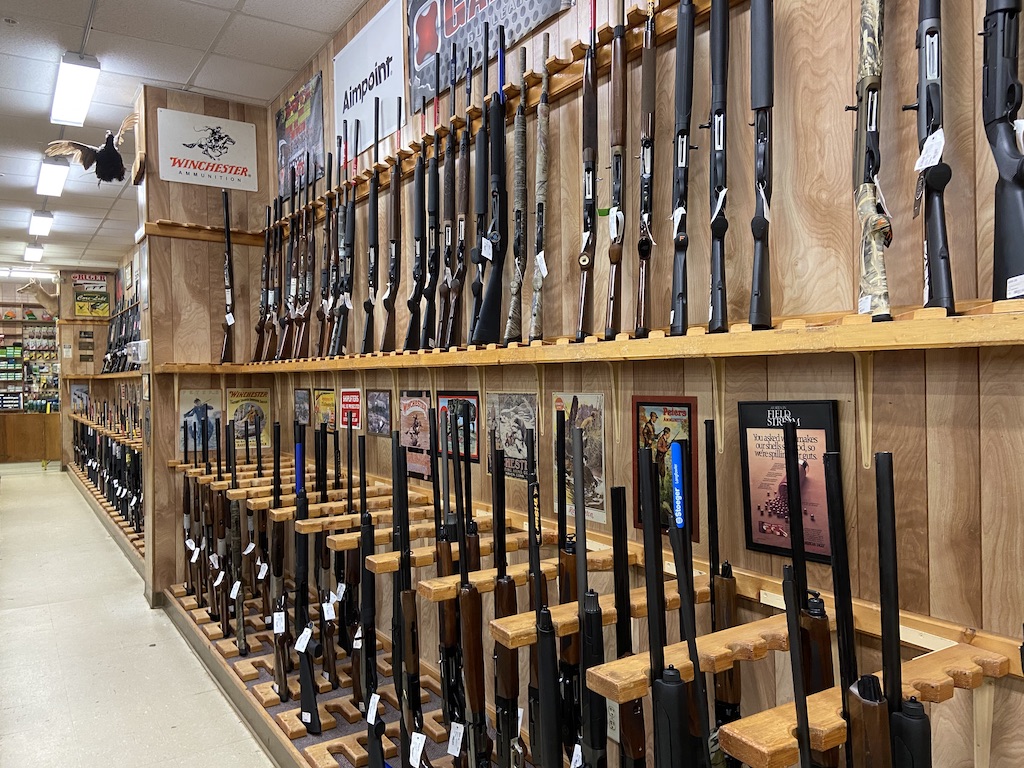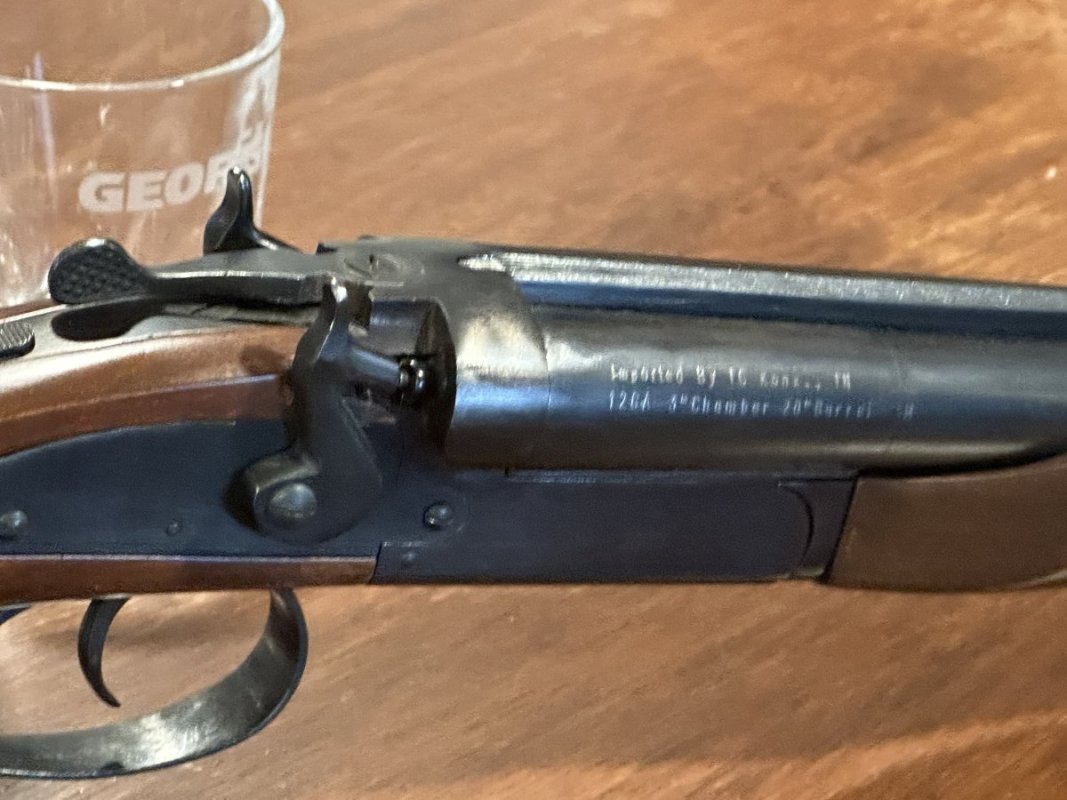Ga Outdoor Gun Trader represents a significant segment of Georgia’s firearm market. This sector, encompassing private sales and trades outside formal retail channels, involves a diverse range of individuals with varying motivations, from hobbyists and collectors to those prioritizing self-defense. Understanding this market requires examining its online presence, legal framework, and the role of gun shows and events. The economic and social impacts of this activity also warrant careful consideration.
This report delves into the demographics of those involved in Georgia’s outdoor gun trading community, exploring their reasons for participation and comparing Georgia’s legal landscape to other states. We analyze the online platforms used for transactions, highlighting both the benefits and the risks associated with online gun sales. Furthermore, we examine the legal and ethical considerations surrounding private gun transfers, the procedures involved in safe and legal transactions, and the responsibilities of both buyers and sellers.
The report also covers the significance of gun shows and events, their organization, and safety measures implemented at these gatherings. Finally, we analyze the economic and social impacts of this market, considering its relationship to community safety and crime rates.
Understanding Georgia’s Outdoor Gun Trader Market
Georgia’s outdoor gun trading market is a complex ecosystem influenced by factors ranging from state laws and online communities to individual motivations and economic conditions. This analysis explores the demographics, motivations, legal framework, and overall impact of this market.
Georgia Outdoor Gun Trader Demographics and Motivations

Source: uga.edu
The Georgia outdoor gun trading community comprises a diverse group of individuals. While precise demographic data is limited, participants likely include hunters, sport shooters, collectors, and individuals focused on self-defense. Motivations for participation vary significantly. Many are driven by a passion for firearms as a hobby, actively seeking specific models or engaging in competitive shooting. Others prioritize self-defense, viewing firearm ownership as a crucial aspect of personal safety.
A considerable portion are collectors, seeking rare or historically significant firearms. Finally, some participate for financial reasons, buying and selling firearms for profit.
Georgia’s Gun Trading Legal Landscape Compared to Other States
Georgia’s gun laws regarding private firearm sales are relatively permissive compared to some other states. While background checks are generally not required for private sales, there are restrictions on certain types of firearms and transfers to prohibited persons. This contrasts with states like California or New York, which have stricter regulations and mandatory background checks for all firearm sales, including private transactions.
Understanding these differences is crucial for both buyers and sellers operating within the state’s legal framework. The absence of a universal background check system in Georgia necessitates increased personal responsibility for safe and legal transactions.
Common Firearms Traded in Georgia
| Type | Caliber | Average Price | Common Uses |
|---|---|---|---|
| Handguns (Pistols) | 9mm, .45 ACP, .40 S&W | $400 – $1500 | Self-defense, concealed carry, target shooting |
| Rifles | .223 Remington, .308 Winchester, .30-06 Springfield | $500 – $2000+ | Hunting, sport shooting, target practice |
| Shotguns | 12 gauge, 20 gauge | $300 – $1000+ | Hunting, sport shooting, home defense |
| Black Powder Firearms | Various | Varies widely | Collecting, historical reenactments, target shooting |
Online Platforms and Interactions in Georgia’s Gun Trading Community
Online platforms play a significant role in facilitating Georgia’s outdoor gun trades. Forums, social media groups, and dedicated firearm marketplaces connect buyers and sellers, often bypassing traditional retail channels. Understanding the nuances of these online interactions, including communication styles and potential risks, is essential for safe participation.
Online Gun Trading Forums and Social Media Groups
Online forums and social media groups dedicated to firearms often feature detailed discussions about specific firearm models, accessories, and legal considerations. Communication styles can range from informal and conversational to highly technical, depending on the platform and the topic. Common language includes technical specifications, slang terms, and references to specific manufacturers and models. However, the anonymity afforded by online platforms can also create challenges in verifying identities and ensuring secure transactions.
Risks and Security Concerns in Online Gun Transactions

Source: b-cdn.net
Online gun transactions carry inherent risks. Scams, fraudulent listings, and the potential for illegal sales are significant concerns. Buyers should be wary of excessively low prices or deals that seem too good to be true. Sellers need to be cautious about meeting unknown buyers in isolated locations. Establishing a secure and verifiable communication channel, utilizing escrow services when possible, and meeting in well-lit, public places are vital safety precautions.
Hypothetical Online Safety Guide for Georgia Gun Traders
- Always verify the buyer’s or seller’s identity through multiple channels.
- Use secure communication methods and avoid sharing personal information unnecessarily.
- Meet in well-lit, public places for transactions; never meet in isolated locations.
- Inspect firearms thoroughly before completing a purchase.
- Familiarize yourself with Georgia’s gun laws regarding private sales.
- Report suspicious activity or scams to the appropriate authorities.
- Consider using an escrow service for high-value transactions.
Legal and Ethical Considerations in Georgia Gun Trades
Navigating the legal and ethical landscape of Georgia’s outdoor gun trading market requires a thorough understanding of state laws and responsible practices. This section details the legal requirements, responsibilities of buyers and sellers, and best practices for minimizing risks.
Georgia’s Laws Regarding Firearm Sales and Transfers, Ga outdoor gun trader
Georgia law allows for private firearm sales without mandatory background checks, but prohibits sales to individuals legally prohibited from owning firearms (e.g., convicted felons, individuals with certain mental health conditions). Sellers should exercise due diligence to ensure they are not selling to a prohibited person. Failure to do so can result in significant legal consequences.
Procedures for Legally and Safely Conducting an Outdoor Gun Trade
Buyers and sellers should meet in a well-lit, public place, preferably with a third party present. Both parties should inspect the firearm thoroughly, ensuring its functionality and safety. All documentation related to the transaction should be properly completed and retained. Following established safety procedures, such as keeping the firearm unloaded and handling it responsibly, is paramount.
Responsibilities of Buyers and Sellers in Private Gun Transactions
Sellers are responsible for ensuring they are not selling to prohibited persons and for providing accurate information about the firearm. Buyers are responsible for verifying the firearm’s legality and for handling it safely. Both parties share a responsibility for conducting the transaction in a manner that complies with all applicable laws and ethical standards.
Best Practices to Minimize Legal and Ethical Risks
- Conduct thorough research on firearm laws in Georgia.
- Always meet in a public place for transactions.
- Ensure all parties involved understand and comply with relevant laws.
- Keep records of all transactions, including dates, locations, and parties involved.
- Report any suspicious activity to the appropriate authorities.
Gun Shows and Events in Georgia: Ga Outdoor Gun Trader
Gun shows and events in Georgia provide a significant venue for firearm transactions. Understanding their structure, procedures, safety measures, and potential risks is crucial for safe and legal participation.
Structure and Organization of Georgia Gun Shows
Georgia gun shows typically feature numerous vendors selling firearms, ammunition, accessories, and related products. They often include a mix of licensed dealers and private sellers. The organization varies depending on the show’s size and location, but most follow established procedures for security and safety.
Buying and Selling Firearms at Gun Shows
The process of buying and selling firearms at gun shows generally involves direct interaction between buyers and sellers. Licensed dealers are required to conduct background checks, while private sales often do not involve background checks. Buyers should carefully inspect firearms before purchasing, and sellers should ensure they are complying with all applicable laws.
Safety Measures at Georgia Gun Shows
Many Georgia gun shows implement various safety measures, such as security personnel, designated areas for firearm handling, and rules prohibiting the handling of loaded firearms. These measures aim to minimize accidents and ensure a safe environment for attendees.
Identifying Problematic Situations or Individuals at Gun Shows
Attendees should be vigilant and report any suspicious activity to show organizers or security personnel. Individuals attempting to sell illegal firearms, engage in fraudulent activities, or behave in a disruptive manner should be reported immediately. Maintaining awareness of one’s surroundings and exercising caution are key to ensuring personal safety.
Economic and Social Impacts of Georgia’s Outdoor Gun Trading Market
Georgia’s outdoor gun trading market has significant economic and social implications, influencing various aspects of the state’s economy and community dynamics. Understanding these impacts is vital for a comprehensive assessment of the market’s role in the state.
Economic Impact of the Outdoor Gun Trading Market
The outdoor gun trading market contributes to Georgia’s economy through sales of firearms, ammunition, accessories, and related services. It supports businesses involved in manufacturing, distribution, and retail. The economic impact extends to related industries, such as gunsmithing and firearm training. However, quantifying the precise economic contribution is challenging due to the informal nature of some aspects of the market.
Social Implications of Outdoor Gun Trading
The social implications of outdoor gun trading are complex and multifaceted. While proponents argue that it fosters a sense of community among firearm enthusiasts, critics raise concerns about its potential contribution to gun violence. The relationship between outdoor gun trading and crime rates requires careful analysis and consideration of various contributing factors.
Georgia outdoor gun traders report a surge in sales of self-defense firearms, reflecting a growing interest in preparedness. This aligns with increased demand for essential survival gear, as highlighted in a recent article detailing must haves for off grid living , where firearm proficiency is often listed as a crucial skill. Consequently, GA outdoor gun trader businesses are experiencing a boom in both sales and training courses.
Correlation Between Outdoor Gun Trading and Crime Rates
Establishing a direct causal link between outdoor gun trading activity and crime rates is difficult. While some studies suggest a correlation, other factors, such as socioeconomic conditions and access to firearms through illegal channels, also significantly influence crime rates. Comprehensive research is needed to better understand the complex interplay of these factors.
Illustrative Flow of Funds in Georgia’s Gun Trading Ecosystem
A simplified illustration of the flow of funds would depict money moving from buyers to sellers in private transactions, and from buyers to licensed dealers. A portion of the funds from licensed dealers would flow to manufacturers and distributors. A smaller portion might flow to related businesses like gunsmiths and training facilities. This simplified model does not capture the complexity of the informal market or the movement of funds related to illegal activities.
Last Recap
The Georgia outdoor gun trading market is a complex ecosystem with significant legal, social, and economic ramifications. Navigating this market requires a thorough understanding of state laws, online safety practices, and responsible conduct at gun shows and events. While offering opportunities for legal firearm transactions, it also presents inherent risks that necessitate careful attention to safety and ethical considerations.
Continued monitoring of this market and its impact on Georgia communities is crucial.
